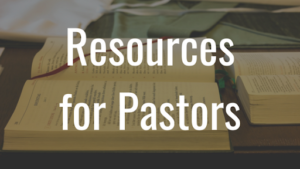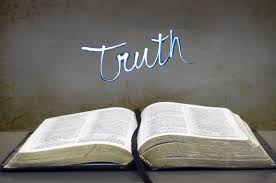Video Links:
Renewal of Biblical Discipleship- Introduction
Renewal of Biblical Discipleship- Part 1- The Foundation
Renewal of Biblical Discipleship- Part 2- Follow Me
Renewal of Biblical Discipleship- Part 3- Fruit That Remains
Renewal of Biblical Discipleship- Part 4- The Form
Renewal of Biblical Discipleship- Conclusion
Mentoring and Coaching Movement Leaders
LEADERS
Who are they?
- People chosen and anointed by the Lord. A leader is one who helps God’s people move from where they are to a better place. Paul invited others to follow him as he followed Jesus.
- Example 1: Moses was called by God to move the Lord’s people out of slavery and into the Promised Land.
- Example 2: The disciples were called by Jesus and filled with the Holy Spirit to testify to the ends of the earth of the whole gospel of the Kingdom, beginning with the reality and meaning of the death and resurrection of Jesus, and teach people from all nations to obey all that Jesus commanded them.
What do they do?
Leaders develop other leaders. This involves:
- Discerning and recognizing potential: Jesus choose 12 apprentices that did not seem to be promising prospects. Yet they eventually “turned the whole world upside down.”
- Prayerfully selecting the right leaders
- Constantly spending time with them and praying with them, and studying the scriptures together to obey it and to understand how to lead others to obey. Leaders are not developed mainly through training events, but through relationships with heavy investment of time spent together.
- Equipping and encouraging them to meet with their next line of leaders to hear their stories, encourage the good things they are doing and helping them stay on track in the pattern of disciple making, including the habit of praying and studying the scriptures together.
How do you recognize potential leaders?
- They have a willingness to follow (This reveals their attitude)
- They have a willingness to sacrifice (This reveals their true perspective on life)
- They have a willingness to learn (This reveals the condition of their ego)
- They have a willingness to serve (This reveals their heart and compassion towards others)
- They have a willingness to be honest (This reveals their maturity)
What do you focus on when building leaders?
- Focus on their faithfulness to continue following
- Focus on their friendliness and relationships with the people they are called to lead
- Focus on their capacity or untapped ability
- Focus on their practical knowledge gained out of experience and obedience
- Focus on their relational intuition and their general understanding of people
- Focus on their willingness to pay the price
- Focus on their energy or drive
How do you evaluate and mentor leaders?
- Focus on their potential rather than on their performance
- Focus on what they are learning and putting into practice (what are they modeling to others?)
- Focus on how they are mentoring others
- Focus on their personal development
- Focus on their progress in ministry
LEVELS OF LEADERS
Outside: This group of leaders come from outside the community they are working among. They have short term roles that are crucial to start, strengthen, stabilize, stimulate and establish the vision for movements.
- Catalysts (Start DMM in new places and among new people groups):
Catalysts enter new communities, find persons/households of peace and help them begin new Discovery Groups among their own family, friends and social networks; Encourage the Discovery Group to discover truth from the scriptures themselves; Identify Group Facilitators in new Discovery Groups to facilitate the group in discovering truth from the scriptures for themselves.
- Coaches (Strengthen DMM in new places and among new people groups):
A Catalyst often serves a secondary role as a Coach. In the role of Coach, the focus is on equipping new group facilitators and gathering leadersto implement principles and process of DMM within their groups and gatherings.
- Coordinators (Stabilize multiplication and quality of DNA in DMM’s in new places and people groups):
Coordinators monitor and evaluate the expansion and extension of the Church to stay on track in order to see movements reach and spread among an Unreached People Group or Unreached Community.This includes seeing balance of growth, depth and length (sustainability) in each movement.
- Regional Equippers (Stimulate development of DMM in new movements):
Mobile Equippers and Encouragers stir up Catalysts, Coaches and Coordinators and keep them in line with Biblical Patterns of Disciple Making to Reach and Spread among Unreached Peoples and Places.
- Movement Leaders (Strategy Coordinators, Standard Bearers, Visionary/Apostolic Leaders – Launch new DMM’s):
Cast Vision for and lead disciple-making disciples and gatherings (all local gatherings) to see “the obedience that comes from faith” among all peoples.
Inside: This group of leaders come from inside the community where the disciple-making is going on. They emerge in different roles over time. Some of the roles are temporary while others continue indefinitely to establish and maintain healthy churches and see them multiply in the same community and beyond. Some of them will become “Outside Leaders” as they begin to invest in other communities (other people groups and places) beyond their own.
- Persons of Peace / Households of Peace (Identified by Catalysts)
- Discovery Group Facilitators (Identified by Catalysts)
- New Gathering Emerging Leaders (Identified and equipped by Coaches)
- Gathering Elders and Deacons (Identified and Appointed by Coaches)
- Gifted Leaders within a single Gathering (based on Spiritual Gifts)
BIBLICAL MODELS AND PATTERNS OF LEADERS AND THEIR ROLES TO FOLLOW
In DMM, the pattern and models to follow flow out of stories and examples from the scriptures. The principles and practices are not based on modern day or traditional theory and regulations. Rather, the principles and practices flow out of real stories from Jesus and his first followers. The following Scriptures are suggestions of ways Jesus and his disciples launched and led movements as recorded in the New Testament. From your own studies of the Scriptures and your personal application of them in your own context, you may find other stories from the Bible that are useful to learn from in seeing and understanding leadership patterns that lead to establishing healthy movements.
Roles and Examples of Outside Leaders in Launching Movements
Catalysts (Starters)
Enter new communities, find persons/households of peace and helpthem begin new Discovery Groups among their family, friends and social networks; Encourage the Discovery Group to discover truth from the scriptures themselves
Acts 8:1,4-8, 26, 40 – Philip enters a new community
- Where was the church scattered to? (Throughout Judea and Samaria)
- What community did Philip go to? (City of Samaria)
- What response was there in that city? (They paid attention to his message, were healed and had much joy)
- Besides Samaria, where else did Phillip go?
Acts 10 – Peter finds a person of peace
- How did Cornelius learn about Peter?
- How did Peter learn about Cornelius?
- How was Cornelius prepared to listen to Peter?
- Who was gathered when Peter arrived at the home? (Cornelius, his relatives and close friends)
- What happened to the people of Cornelius’ household while Peter was speaking to them? (The Holy Spirit fell on them, and they were baptized)
- What was the main important lesson Peter learned from this? (the gospel is for everyone, with no exceptions, prerequisites or limitations)
Encourage the Discovery Group to discover truth from the scriptures themselves
Acts 17:10-12 The Bereans examining the Scriptures
- Who examined the scriptures and how often? (The Bereans examined them daily)
- What did they look for in the Scriptures? (They looked to see if what Paul said was true)
- What happened as a result of examining the Scriptures? (Many of them believed)
Coaches (Strengtheners)
Strengthen and encourage new groups and new gatherings in the early days; Appoint and coach Group Facilitators and Gathering Leaders (“elders”) to facilitate the groups and gatherings.
Acts 11:19-26 – Barnabas and the church in Antioch
- When Barnabas saw the people in Antioch who had turned to the Lord, how did he feel about it and what did he do? (He was glad, and he told them to remain faithful to the Lord)
- What did he do with them and for how long? (He stayed with them for one year, along with Paul to strengthen them in their faith)
Acts 14:1-3 – Paul and Barnabas at Iconium
- In Iconium a group of people believed, but there were unbelievers who were against them. What did Paul and Barnabas do? (They stayed for a while, speaking boldly for the Lord)
Coaches (Strengtheners) (Continued)
After the Discovery Group identifies itself as a New Gathering, Coaches Identify leaders within 4-6 weeks to implement principles and process of DMM within their immediate community
Acts 14:21-23 – Appointing elders in every church
- How did Paul and Barnabas appoint elders? (With prayer and fasting, committing them to the Lord)
Titus 1:5 – Elders in Crete
- What assignment did Paul give to Titus? (To appoint elders in every town according to what he had learned from Paul)
Coordinators (Stabilizers)
Provide STABILITY among leaders over regions.Encourage and exhort next generation of leaders. Set example as a mentor for other leaders to follow.
Acts 20:2-7 – Paul traveling with and spending extra time with key leaders from each of the main regions where Paul had traveled.
- Who were the men who traveled with Paul and where were they from? (Sopater from Berea, Aristarchus and Secundus from Thessalonica, Gaius from Derbe, Timothy from Galatia – though this is not stated, and Tychicus and Trophimus from Asia.)
- How much time did he spend with them when they met in Troas? (seven days)
Acts 20:17-36 – Paul with the Ephesian Elders
- What did Paul remindthem of? (Paul reminded them of how he had lived and served among them)
- What instructions did he give them? (Pay careful attention to themselves and the flock; care for the church of God; be alert)
- What warnings did he gave them? (To watch out for wolves from outside and men from among them speaking twisted things)
- What example did Paul leave them to follow? (He admonished them with tears; worked hard with his own hands; did not covet anyone’s silver or gold; told them it was more blessed to give than to receive)
- To what did Paul commend these elders? (To God and to his word)
Regional Equippers (Stimulators)
Equip Catalysts, Coaches and Coordinators in Biblical Patterns, Principles, Habits and Skills of Disciple Making to Reach and Spread among multiple Unreached people groups in a region
Acts 15:30-32; Acts 16:4-5 – Various people revisiting the churches to deliver new messages from the apostles and elders of Jerusalem and to see they are on track
- What did Judas and Silas do when they delivered a letter to the church in Antioch? (Gathered the congregation, read the letter, encouraged and strengthened the believers)
- What did Paul and Timothy communicate to the churches they visited? (They told about the decisions of the apostles and elders in Jerusalem)
Acts 15:36, 40-41 – Re-visiting the churches to strengthen them.
- Why did Paul desire to go back to all the places they had visited (vs. 36)? (to see how they are doing)
- What did he and Silas do (vs. 41)? (strengthened all the churches)
Acts 18:24-28 – Priscilla and Aquilla train and equip Apollos
- What did Priscilla and Aquilla do when they met Apollos? (They discovered his understanding was lacking by observing him while he was teachingand explained to him what he needed to know.)
- How did they help Apollos? (They explained to him in private more accurately)
- How did they preserve Apollos’ honor? (They spoke with him in private)
Movement Leaders (Standard Bearers/Visionaries, Apostolic Leaders)
Launch into new people groups and regions where the gospel has not been and instill vision for all people groupsin the new gatherings; develop needed structure; Identify, address and solve crucial contextual problems.
Romans 1:1-6 – Paul’s Vision as an Apostolic Leader
- What had Paul received? (Grace and Apostleship)
- What did he want to see come about among all nations? (The obedience of faith. Note: this includes all communities and people groups)
Acts 6:1-6 –Develop needed Structure
- What did the leaders do when a problem came up among the new believers? (The leaders [apostles] proposed a solution to the people, and they all agreed on it and carried it out.)
- What kind of men were appointed to carry out the new duty? (Men of good repute, full of the Holy Spirit and of wisdom)
- For what purpose was this new group of men created? (To fulfill a need that was not being met)
Acts 15 – Identify, address and solve crucial contextual issues(Jerusalem Council)
- What did the apostles and elders do when a question was brought to them? (They listened to the debate, they gave perspective from the Scriptures and from what they had personally seen God do, they made a unanimous decision, they made a plan for it to be communicated with the churches)
Roles and Examples of Inside Leaders in Maintaining and Multiplying Movements
Disciples who make Disciples
These are people who show interest in following Jesus and eventually make a commitment to follow him with all their lives based on understanding him as the Son of God who died, was buried and rose again for their sins.
Acts 2:37, 41-47 – All Believers Gathering Together
- How did the new believers demonstrate that they were disciples who made disciples? (They put into practice what they were learning from the apostles and they were continually adding more people – those who were being saved)
Acts 4:18-35 – Believers speaking the word of God, and caring for each other
- How did the believers respond when Peter and John told them they had been forbidden to speak in the name of Jesus? (They prayed for boldness to continue speaking and they continued speaking the word of God)
- How did those who believed demonstrate that they were disciples? (They were of one heart and mind and they made sure that no one was in need)
Persons and Households of Peace (found and engaged by catalysts in discovery from scriptures)
Acts 10:24-27 – Cornelius
- Who did Cornelius bring together with him to hear from the apostle Peter? (Relatives and close friends)
Acts 13:6-12 – Sergius Paulus
- Who summoned Barnabas and Saul? (Sergius Paulus, the proconsul)
- Why did he summon them? (he wanted to hear the word of God)
Acts 16:11-15 – Lydia
- Who was baptized along with Lydia? (Her household)
Gifted Leaders within a single Gathering (based on Spiritual Gifts)
Leaders equipped to lead local gatherings in their own communities and homes
Colossians 1:7, 4:12-13 – Epaphras
- What did Epaphras do on behalf of the Colossian believers? (Struggle in prayer for them)
Colossians 4:7-9 – Tychicus and Onesimus
- How does Paul describe Tychicus and Onesimus? (Faithful and beloved brothers)
Colossians 4:15-17, Nympha and Archippus
- What does the passage say about Nympha and Archippus? (Nympha had a church in her house; Archippus had received a ministry assignment from the Lord and needed to be encouraged to fulfill it)



